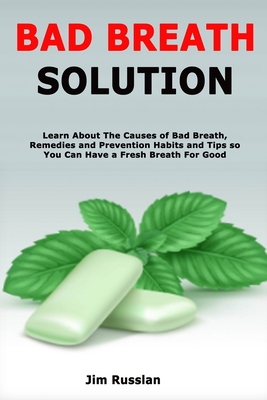Introduction
Bad breath, also known as halitosis, can be an embarrassing and unpleasant condition that affects many individuals. It can have a negative impact on personal relationships and self-confidence. Understanding the causes and remedies for bad breath is essential in order to effectively manage and eliminate this problem.
Causes of Bad Breath
Poor Oral Hygiene
One of the most common causes of bad breath is poor oral hygiene. When we don’t brush and floss regularly, food particles can remain in our mouth, promoting the growth of bacteria that produce foul-smelling gases.
Food and Drink
Certain foods and drinks, such as onions, garlic, coffee, and alcohol, can leave a lingering odor in the mouth. These substances are absorbed into the bloodstream and carried to the lungs, resulting in bad breath.
Dry Mouth
Saliva plays a crucial role in maintaining oral health. When the mouth becomes dry, it can lead to bad breath. Dry mouth can be caused by factors such as medication side effects, breathing through the mouth, or certain medical conditions.
Smoking
Smoking not only stains teeth and damages gums, but it also contributes to bad breath. The chemicals in tobacco products can linger in the mouth and lungs, causing an unpleasant odor.
Underlying Medical Conditions
In some cases, bad breath may be a symptom of an underlying medical condition. Conditions such as sinus infections, respiratory tract infections, diabetes, and liver or kidney problems can all contribute to halitosis.
Remedies for Bad Breath
Maintain Good Oral Hygiene
Brushing your teeth at least twice a day and flossing daily are essential for maintaining good oral hygiene. Additionally, using an antibacterial mouthwash can help kill bacteria that cause bad breath.
Stay Hydrated

Drinking plenty of water throughout the day can help prevent dry mouth, which can contribute to bad breath. Water helps flush away food particles and bacteria, keeping your mouth clean and fresh.
Summary
Bad breath can be caused by various factors, including poor oral hygiene, certain foods, dry mouth, smoking, and underlying medical conditions. Bacteria in the mouth, particularly on the tongue and between the teeth, are often responsible for the foul odor. To tackle bad breath, it is essential to maintain good oral hygiene practices such as regular brushing, flossing, and tongue cleaning. Additionally, staying hydrated, avoiding tobacco products, and making dietary changes can also help alleviate bad breath. If the navigate to this web-site problem persists despite these measures, it is advisable to consult a dentist or healthcare professional to rule out any underlying health issues.
- Q: What causes bad breath?
- A: Bad breath can be caused by various factors such as poor oral hygiene, certain foods and drinks, smoking, dry mouth, certain medical conditions, and bacteria on the tongue.
- Q: How can I improve my oral hygiene to prevent bad breath?
- A: To improve oral hygiene, make sure to brush your teeth at least twice a day, floss daily, clean your tongue with a tongue scraper, and use mouthwash. Additionally, visit your dentist regularly for check-ups and cleanings.
- Q: Are there any specific foods or drinks that contribute to bad breath?
- A: Yes, certain foods and drinks like garlic, onions, coffee, alcohol, and sugary foods can contribute to bad breath. It’s best to avoid or limit their consumption.
- Q: How does smoking affect bad breath?
- A: Smoking not only causes its own distinct odor, but it also dries out the mouth and increases the risk of gum disease, both of which can contribute to bad breath.
- Q: What can I do to combat dry mouth and prevent bad breath?
- A: To combat dry mouth, stay hydrated, chew sugar-free gum or suck on sugar-free candies to stimulate saliva production, avoid alcohol and tobacco, and consider using a humidifier in your home.
- Q: Can certain medical conditions cause bad breath?
- A: Yes, medical conditions such as sinus infections, respiratory tract infections, acid reflux, diabetes, and liver or kidney problems can contribute to bad breath. It’s important to consult a healthcare professional if you suspect an underlying medical condition.
- Q: How can I get rid of bad breath temporarily?
- A: You can try chewing on fresh mint leaves, parsley, or fennel seeds, rinsing your mouth with water or mouthwash, or using sugar-free breath mints or breath sprays. However, these are temporary solutions and it’s important to address the underlying causes of bad breath for long-term freshness.

Welcome to my website! My name is Tristan Wynter, and I am a passionate and dedicated dental hygienist with years of experience in the field of general dentistry, pediatric dental care, smile enhancements, and dental hygiene tips. I am thrilled to have the opportunity to share my knowledge and expertise with you through this platform.




